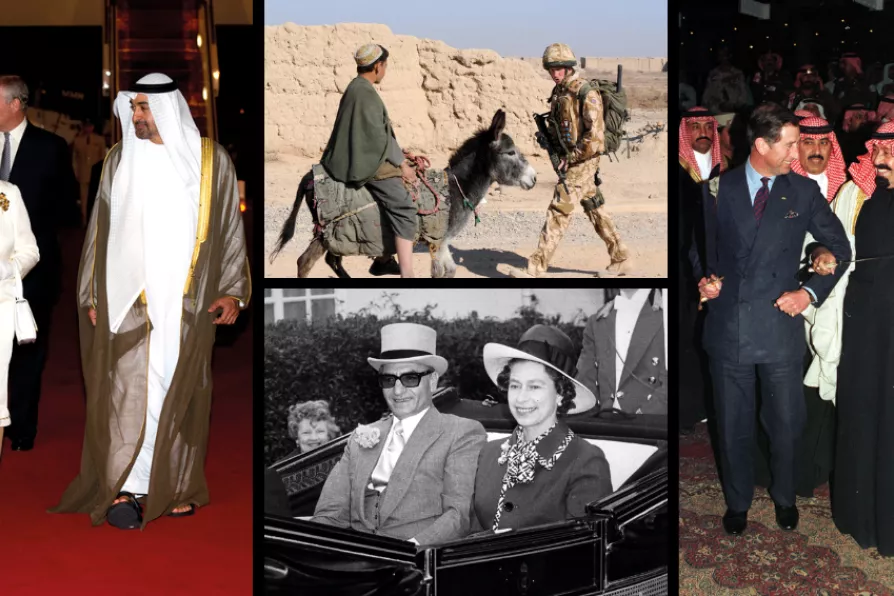Speakers in Berlin traced how Germany’s rearmament, US-led violence abroad and the repression of solidarity at home are converging in a dangerous drive toward war. BEN CHACKO reports

 IN SERVICE OF THE EMPIRE: (Clockwise) Prince Harry patrols a village during the British occupation of Afghanistan, 2008, Prince Charles does the sword dance with the Crown Prince Abdullah bin Abdulaziz al-Saud, 1997, the Queen accompanies the Shah of Persia to the races at Ascot, 1972, and more recently is met by Crown Prince Sheikh Mohammed bin Zayed al Nahyan at the start of a five day visit to the absolute monarchy in Abu Dhabi, 2010
IN SERVICE OF THE EMPIRE: (Clockwise) Prince Harry patrols a village during the British occupation of Afghanistan, 2008, Prince Charles does the sword dance with the Crown Prince Abdullah bin Abdulaziz al-Saud, 1997, the Queen accompanies the Shah of Persia to the races at Ascot, 1972, and more recently is met by Crown Prince Sheikh Mohammed bin Zayed al Nahyan at the start of a five day visit to the absolute monarchy in Abu Dhabi, 2010
FOLLOWING the death of Elizabeth Windsor, no-one in the Establishment media is taking any chances with the public mood.
Public affection for the late Queen is not in doubt and yet BBC journalists are whipping up paroxysms of grief that wouldn’t be out of place in North Korea.
The BBC’s Johnny Diamond and Nicholas Witchell have wrung out every possible emotive line about the Queen’s selfless devotion to service and the nation’s unending sorrow.

STEPHEN ARNELL wonders at the family resemblance between former prince Andrew and his great-uncle ‘Dickie’
![BY ANY MEANS POSSIBLE: Yanaocha mine in Cajamarca, Peru is the largest gold mine in South America operated by Newmont Corporation. It is considered the most profitable in the world [Pic: Elbuenminero/CC]]( https://msd11.gn.apc.org/sites/default/files/styles/low_resolution/public/2025-09/extractive%20caoitakism%20webpic.jpg.webp?itok=DEObb5jr)
JOE GILL appreciates a lucid demonstration of how capital today is an outgrowth of the colonial economy

In the second of two articles, STEVE BISHOP looks at how the 1979 revolution’s aims are obfuscated to create a picture where the monarchists are the opposition to the theocracy, not the burgeoning workers’ and women’s movement on the streets of Iran











